ALIMONY MODIFICATION
There is a mobile optimized version of this page, view AMP Version.

Modification of Alimony in Florida
Alimony is frequently a component of Florida divorces when one spouse can demonstrate a need for alimony and the other spouse has the ability to pay. Under Florida law, most types of alimony are modifiable (unless the parties agree in the final judgment not to modify) provided there has been a substantial change of circumstances. The change in circumstances must not have been contemplated at the time of the final judgment and the change must be permanent and material in nature.
Substantial Change in Circumstances
If a change of circumstances was anticipated at the time the judgment was entered, then the circumstance may not form the basis of the modification. For example, if both parties knew that the alimony payor was going to receive a large raise at the end of the year following the entry of the final judgment, the alimony payee may not seek to modify of the alimony obligation on the basis of the new income. The theory being that the payee should have sought more alimony when he or she knew (at the time of the final judgment) that the alimony payor would receive a raise.
A common grounds for modification is an involuntary job loss. While a job loss may support grounds for modification, the issue the court will examine is whether or not the change is permanent. Many people work in fields where it is relatively easy to secure employment, such as medicine or information technology, so permanent modification may not be appropriate if the person who lost his or her employment can easily secure new employment. Conversely, if a person looses a job in a declining industry, or due to a disability, they may never be able to find employment that supports the current alimony obligation. If kids are involved life changes like these can also be grounds for child support modification.
As a general rule, courts will view a substantial change in circumstances as permanent if it lasts a year or more. However, even if the change is not permanent, courts may abate or temporarily modify an alimony obligation while the person works through issues, such as job losses.
Material Change Warranting Alimony Modification
In order for a substantial change of circumstance to support a alimony modification, the change must be material. For example, a pay cut of a few dollars a month may not be sufficient to support modification of alimony.
Examples of Circumstances that Support an Alimony Modification
Some examples of these changes include:
· Unemployment
· A change in income either by the alimony payor or payee
· Retirement
· The person receiving the alimony gets remarried (Florida statutes supports automatic termination)
· The person receiving alimony enters into a supportive relationship which reduces the need for alimony.
· Health issues
There are circumstances that arise in which many people feel this should justify an alimony modification. However, these circumstances are not considered by the court. For example:
· The payor gets remarried
· The alimony payee quits his or her job voluntarily
Process to Modify Alimony
In order to start the process of modifying alimony, the ex-spouse must file a supplemental petition for modification of alimony. It is important to file a supplemental petition to modify alimony as soon as possible because in most cases Florida courts will not modify an alimony obligation to a date prior to the filing of the supplemental petition.
The law surrounding alimony modification is technical and nuanced. A family law attorney can improve the chances of a modification by organizing and presenting facts and evidence to the Court in relation to Florida law. At The Taylor Law Office, we have sought modification of alimony of behalf of clients in St. Johns County.
If you have additional questions about alimony modification in St. Johns County, Florida, please give The Taylor Law Office a call at 904-834-1991 to set up an initial consultation or Contact Us online.
